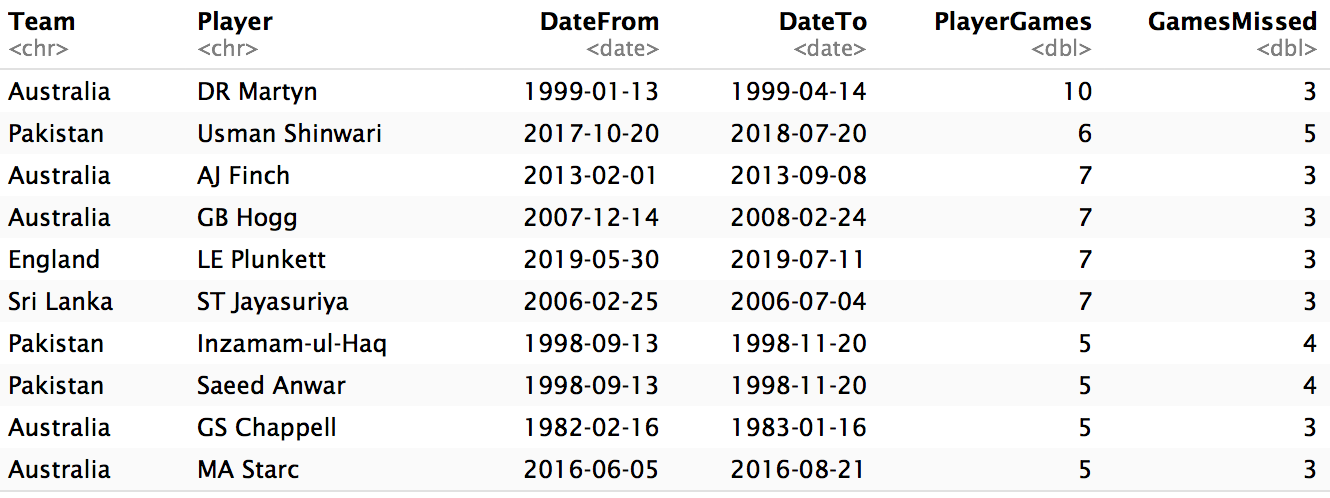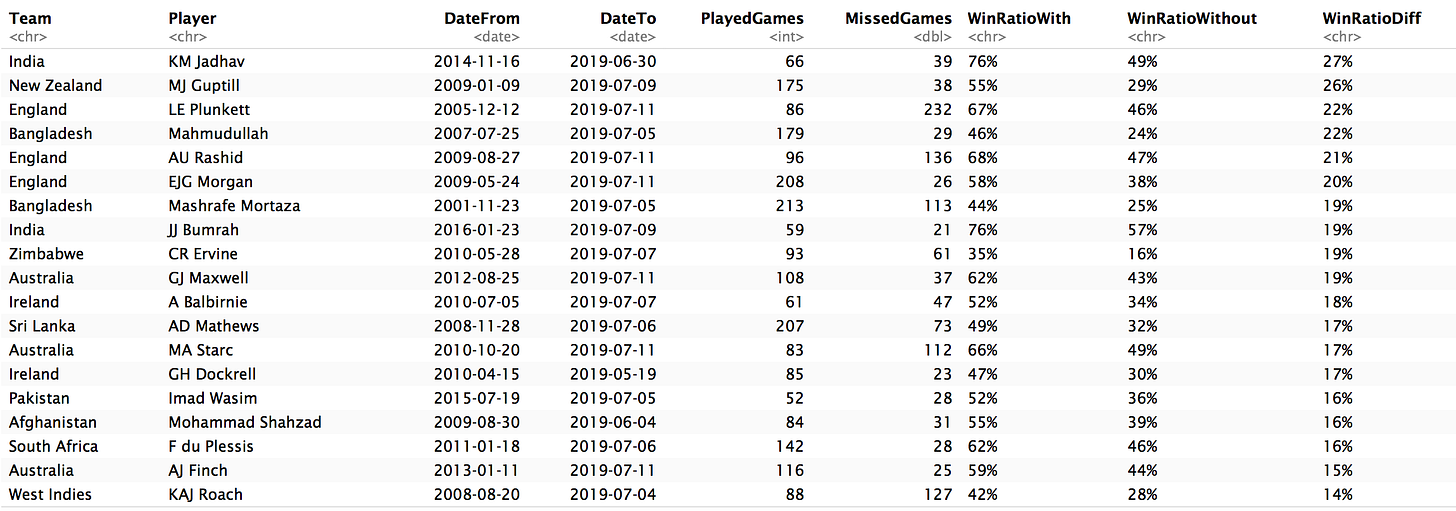26. Plunkett and Chill
In this World Cup, England have won every time Liam Plunkett has played, and lost each time he hasn't
Once in a while it is good to have fun with a post on spurious correlations.
So far in the World Cup, England has played 10 games, of which they’ve won 7. These 7 happen to be the exact games that Liam Plunkett has played. The three games where Plunkett hasn’t played England has lost.
It’s not clear if it’s Plunkett’s contribution in these games that have led to England’s victory. As I’d mentioned in a previous post, Plunkett is an excellent 11-20 bowler, and in the games he hasn’t played, England were forced to turn to new ball bowler Mark Wood to bowl those overs, where he hasn’t been that effective.
In any case, it is possible that in Sunday’s finals against the people from the land of the Plunket Shield, England’s strategy might just be “Plunkett and chill”, and hope that Plunkett’s selection in the eleven will automatically take them to victory.
England’s run of 10 games where they’ve won everything with Plunkett and nothing without Plunkett isn’t the longest by any means. Between January and April 1999, Australia played 13 games of which they won exactly the same 10 games where Damien Martyn played. Perhaps to illustrate that this is a spurious correlation, Martyn wasn’t a regular member of Australia’s World Cup winning side two months later.
Similarly in 2017-18, Pakistan played 11 ODIs where they won only the 6 that Usman Shinwari played him. Shinwari was an “unused substitute” in Pakistan’s squad at this World Cup. Plunkett’s run of 7 wins with and 3 losses without are matched by Aaron Finch (in 2013), Brad Hogg in 2007-8 and Sanath Jayasuriya in 2006.

Now, you can accuse me of data mining above, by looking for specific streaks in players’ careers where their presence led to all wins and their absence to all losses. A little less of data mining is to look at players’ whole careers and look at their team’s win ratio in that period in the games where they’ve played and games that they’ve sat out of (“sat out” can include illness, injury, fights, suspensions and plain being dropped).
Since Kedar Jadhav made his ODI debut in November 2014, he has played 66 ODIs of which India has won 50. In this period, he also missed 39 games for India of which India only won 19. In other words, India’s 76% Win Ratio with Jadhav drops to 49% when he doesn’t play, a drop of 27%.
I must point out that while India wins more games with Jadhav than without, it is hard to establish a causal relationship here. In several games that Jadhav plays in, he doesn’t bat or bowl. He has several failures. He is possibly more likely to have played against easier opposition than against top teams. And so forth.
Restricting our analysis to contemporary players who have played at least 50 games for their country, and who have missed at least 20 games through their careers, Jadhav represents the largest drop in win probability for his team. He is closely followed by Martin Guptill, and Liam Plunkett! Plunkett’s good luck charm in this World Cup has a longer history, it seems.

The only other Indian in the top 20 among players whose very presence elevates the team’s chances of victory is Jasprit Bumrah.
If we look at the other end of the scale (players whose presence depresses the chances of the team’s victory), there are six Indians in the top 20, including Virat Kohli, Mahendra Singh Dhoni and Mohammad Shami. Some of the other names in the list also make for interesting reading.

(Note: my data set only contains games where the team has batted, so there might be some difference in aggregate numbers)
As I said at the top of the post, this is just some statistical fun. There is absolutely no causality that can be drawn from any of these numbers. Then again, most sports statistics is an exercise in data mining.



